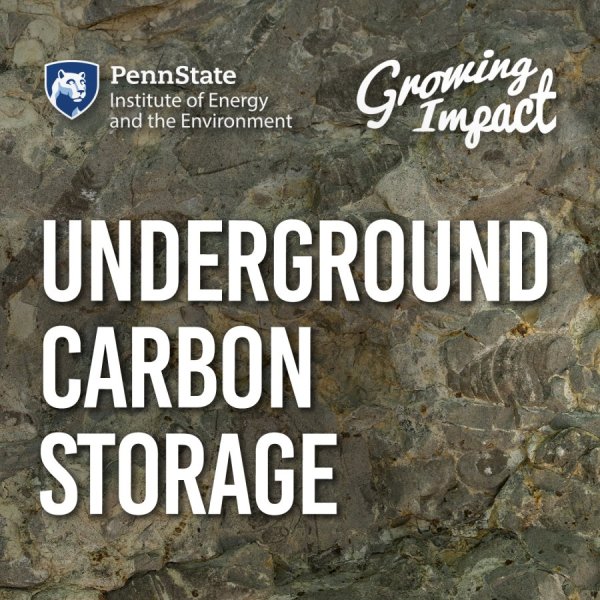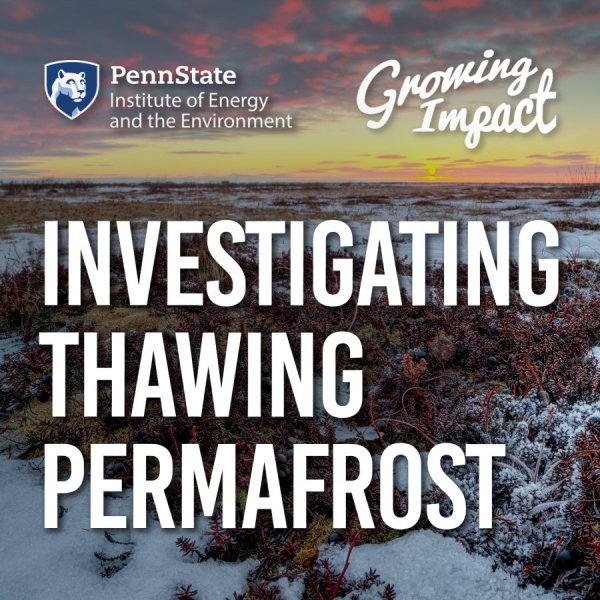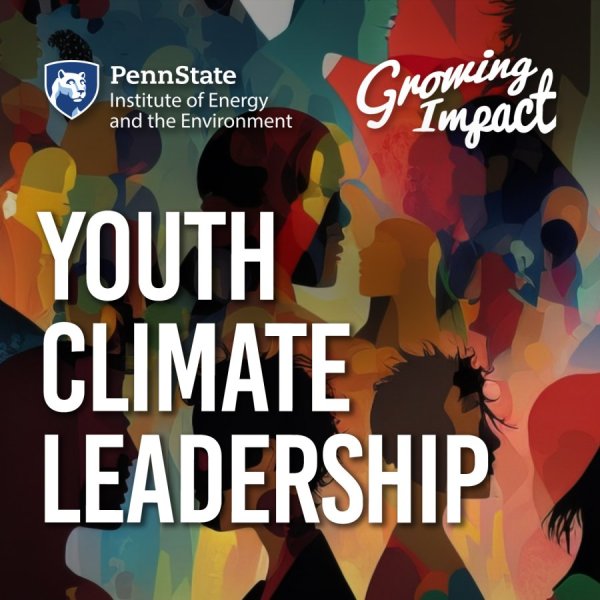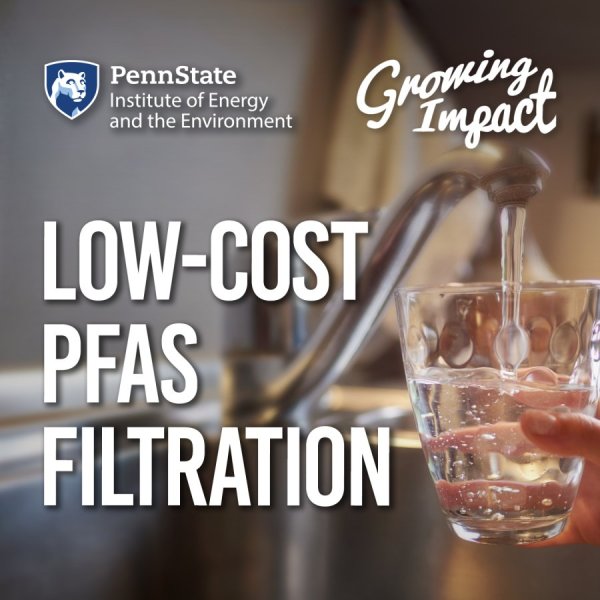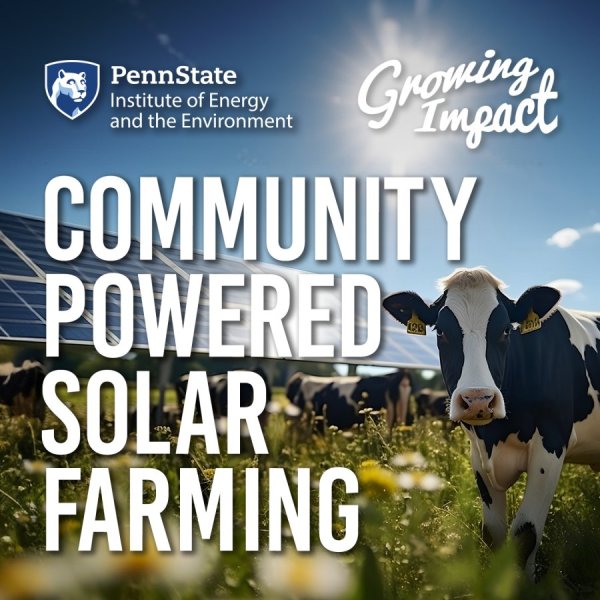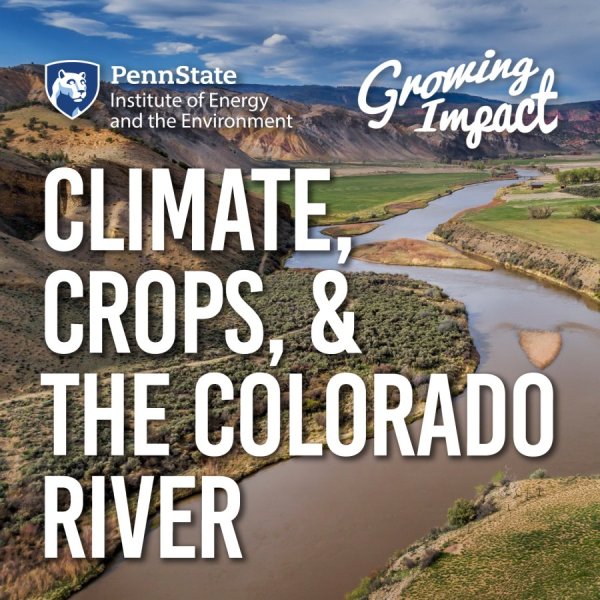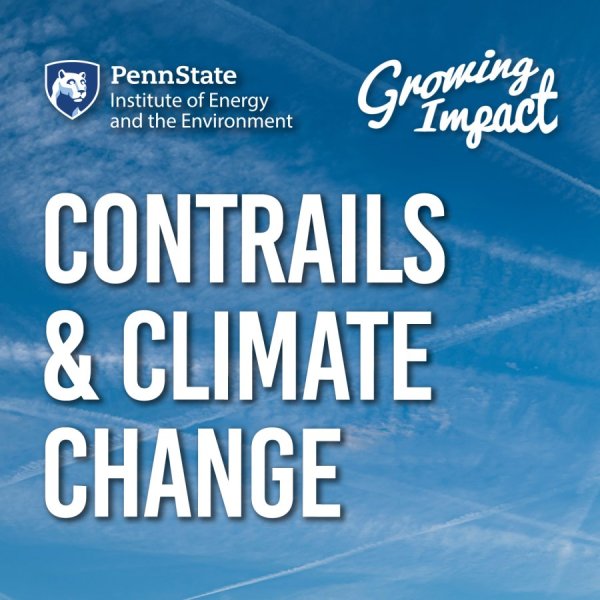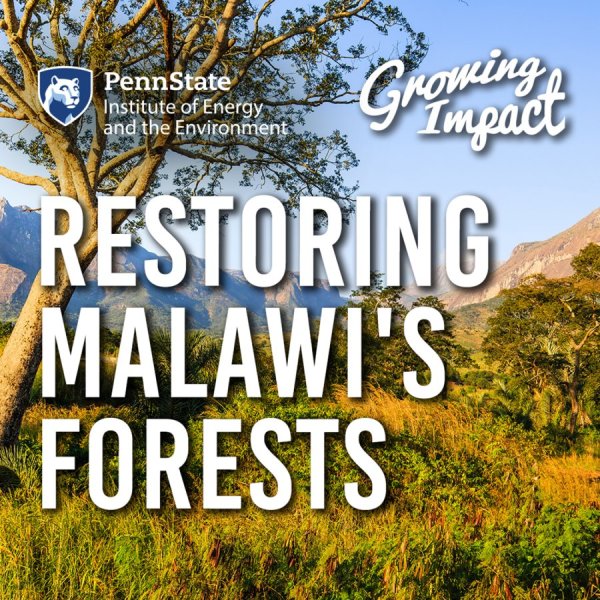Growing Impact is a podcast by the Institute of Energy and Environment (IEE) that explores cutting-edge projects of researchers and scientists who are solving some of the world's most challenging energy and environmental issues. Each project has been funded through the IEE Seed Grant Program.
Growing Impact: Underground carbon storage
In this episode:
- Name
- Name
Storing carbon dioxide underground could offset the record amounts of CO2 that humans emit each year. If this technology is successful, it could be an answer to climate change impacts, such as rising temperatures and acidification of the ocean. However, the process is complex and costly. A team of researchers is exploring one way liquid CO2 could be injected into rock formations, which may efficiently convert the molecule into a solid.
Growing Impact: Investigating thawing permafrost
In this episode:
- Name
- Name
- Name
Once a frozen haven, climate-driven rising temperatures are rapidly thawing the Arctic permafrost, posing a major threat to communities and infrastructure. Researchers are investigating how these changes will transform rivers, with potential consequences for erosion, sediment transport, and the entire Arctic landscape. Additionally, their project incorporates art to communicate these critical findings in an engaging way.
Growing Impact: Youth climate leadership
In this episode:
- Name
- Name
The global push to involve youth in climate action is gaining momentum, harnessing their innovative spirit, deep investment in the future, and strong collective voice to combat climate change. Getting young people involved ensures that climate policies are forward-thinking and geared towards sustainable development, while their global solidarity and use of digital platforms amplify the call for urgent action. At the forefront of this movement, Penn State's Global Youth Storytelling and Research Lab aims to become a pivotal transnational research hub, empowering young leaders to shape the future of climate and environmental justice.
Growing Impact: Low-cost PFAS filtration
In this episode:
- Name
- Name
- Name
- Name
For decades, PFAS (per- and polyfluoroalkyl substances) have been a staple in products from detergents to cosmetics, making items more durable and resistant to water and stains. However, these "forever chemicals" persist in the environment and are now ubiquitous, even in our drinking water. Emerging evidence links PFAS exposure to significant health risks, prompting a team of researchers to evaluate affordable filtration technology, especially in communities reliant on well water.
Growing Impact: Community-powered solar farming
In this episode:
- Name
- Name
- Name
Solar energy's surge, driven by cost efficiency and climate change urgency, is prompting a rapid transition to a renewable energy source with substantial land requirements. To inform just and sustainable rural land use with solar, a research team is working in rural communities to determine the potential for harmonious coexistence between solar and agriculture.
Growing Impact: Climate, crops, and the Colorado River
In this episode:
- Name
- Profile Photo
 NameMeetpal Kukal
NameMeetpal Kukal - Name
- Name
The Colorado River supports more than a trillion dollars in economic activity and supplies water to an estimated 40 million people. The overuse of the Colorado River and an extensive climate change-driven drought have significantly decreased the volume of the fifth largest river in the U.S. A research team is exploring how climate change and agricultural adaptation will affect water availability in the Upper Colorado River Basin and what is important to communities that depend on the river.
Growing Impact: Contrails and climate change
In this episode:
- Name
- Name
- Name
- Name
Contrails are the second largest contributor to aviation's impact on climate change after carbon dioxide emissions from fuel burn. A new interdisciplinary project looks to identify opportunities to mitigate the climate impacts of contrails as the number of people flying is anticipated to grow in the coming years.
Growing Impact: Restoring Malawi's forests
In this episode:
- Name
- Profile Photo
 NameTong Qiu
NameTong Qiu - Profile Photo
 NameJudith Kamoto
NameJudith Kamoto
Malawi is facing environmental challenges including deforestation, soil erosion, and unsustainable farming practices. While Malawi has pledged to restore degraded lands, it is not clear if any efforts are accomplishing what they intended. A research group is using Malawi as a case study to better inform policies and practices in forest landscape restoration.
Growing Impact: Solar-powered water treatment
In this episode:
- Name
- Name
With rising energy costs and the worsening climate crisis, some wastewater treatment plants have started using solar energy. However, solar adoption at wastewater treatment plants is still relatively new, and there is little known about these facilities, including where they are, what drove them to choose solar, and if solar has been a success. A team of researchers looks to fill in those gaps with a new project.
Growing Impact: Upcycling plastics with fungi
In this episode:
- Name
- Name
- Name
Plastic is everywhere. It's part of our homes, our clothing, our vehicles. It wraps our food, and it's part of virtually every technology. It really is an amazing, versatile, and affordable material. And a highly used plastic is plastic film—as in garbage bags, grocery bags, and plastic wrap. Generally, plastic film is a one-time use material. After that one use, it's usually thrown into a landfill, which comes to nearly 6 million tons every year. Enter our team of researchers who found inspiration from a Netflix documentary. That inspiration? The amazing fungus. Now the team is exploring if fungus could help us manage our plastic waste economically.





